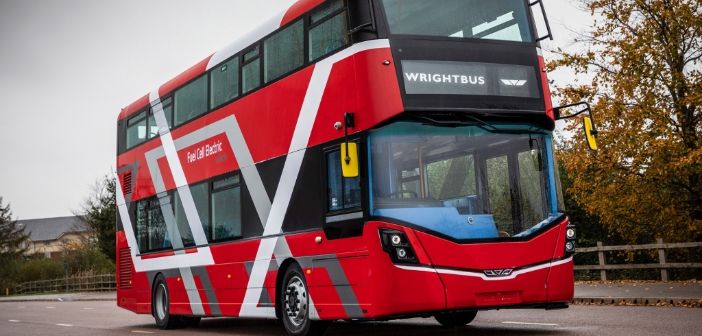The first hydrogen-powered buses in London have entered service, as Transport for London (TfL) works to transition to zero-emission travel opinions.
The first 20 hydrogen fuel-cell electric buses, from Northern Ireland-based bus manufacturer Wrightbus, will operate on routes 7 and N7 travelling to Wembley Stadium and west London.
According to TfL, hydrogen buses can store more energy on board than equivalent battery-electric buses. This enables them to be deployed on longer routes with refuelling needed once a day.
The operator has invested £12m in the fleet and the associated fuelling infrastructure. Some £5m of funding has been provided by the Fuel Cells and Hydrogen Joint Undertaking and the Innovation and Networks Executive Agency, with £1m coming from the Office of Low Emission Vehicles.
The hydrogen-powered buses will join the capital’s fleet of electric buses as part of the mayor of London’s pledge to have the largest zero-emission bus fleet in Europe.
Claire Mann, TfL’s director of bus operations, said: “London has the cleanest bus fleet in Europe, but we know we need to go further and faster to tackle the public health emergency caused by dirty air.
“Innovating and using hydrogen means we have flexibility in matching the right fuel with the operational requirements of the network.
“We are also pleased to be leading an initiative that brings down the cost of buying the greenest buses across the continent and within our own country, as we know pollution doesn’t respect national or local boundaries.”
As previously reported by CiTTi, London was due to introduce the hydrogen double-decker buses in 2019. However, this was delayed due to the coronavirus pandemic. Aberdeen became the world’s first city to introduce hydrogen double-deckers in February.
Furthermore, Birmingham will become the next city introducing 20 hydrogen buses later this year.





